Abstract
This study investigated the relation between prevocational preference, as measured by the client's selection of a task object, and the work that followed that choice. After selecting a task object, the clients worked a task previously assessed to be more or less preferred than the one indicated by the object. The results indicated that when the selection represented a task that was less preferred than the one actually worked, choices for that object increased on subsequent trials. Conversely, when the selection represented a task that was more preferred than the task subject actually worked, choices for the object decreased on subsequent trials. The work that followed object choices reinforced or punished subsequent selections. These findings indicated that the clients' object choices were valid indicators of their preference for working different tasks. They were also consistent with Premack's principle that one class of responses may reinforce or punish a different class of responses for the same individual.
Full text
PDF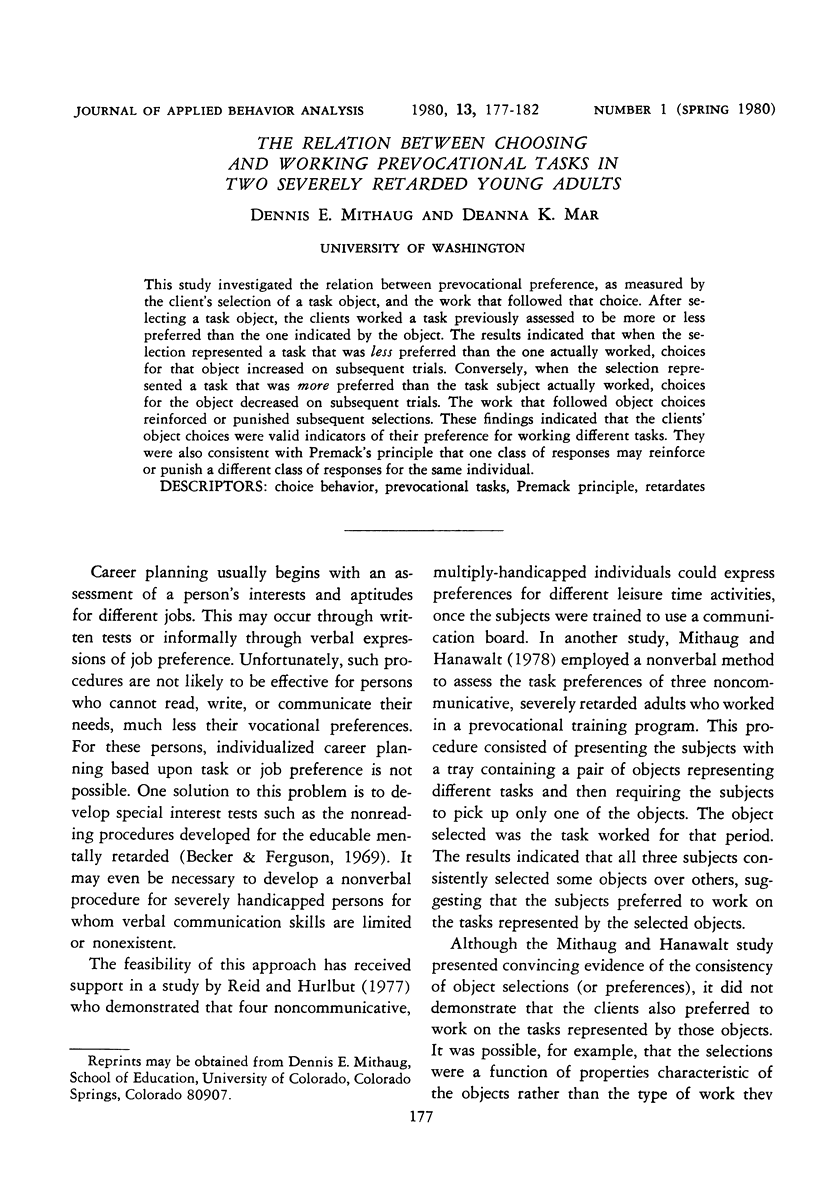
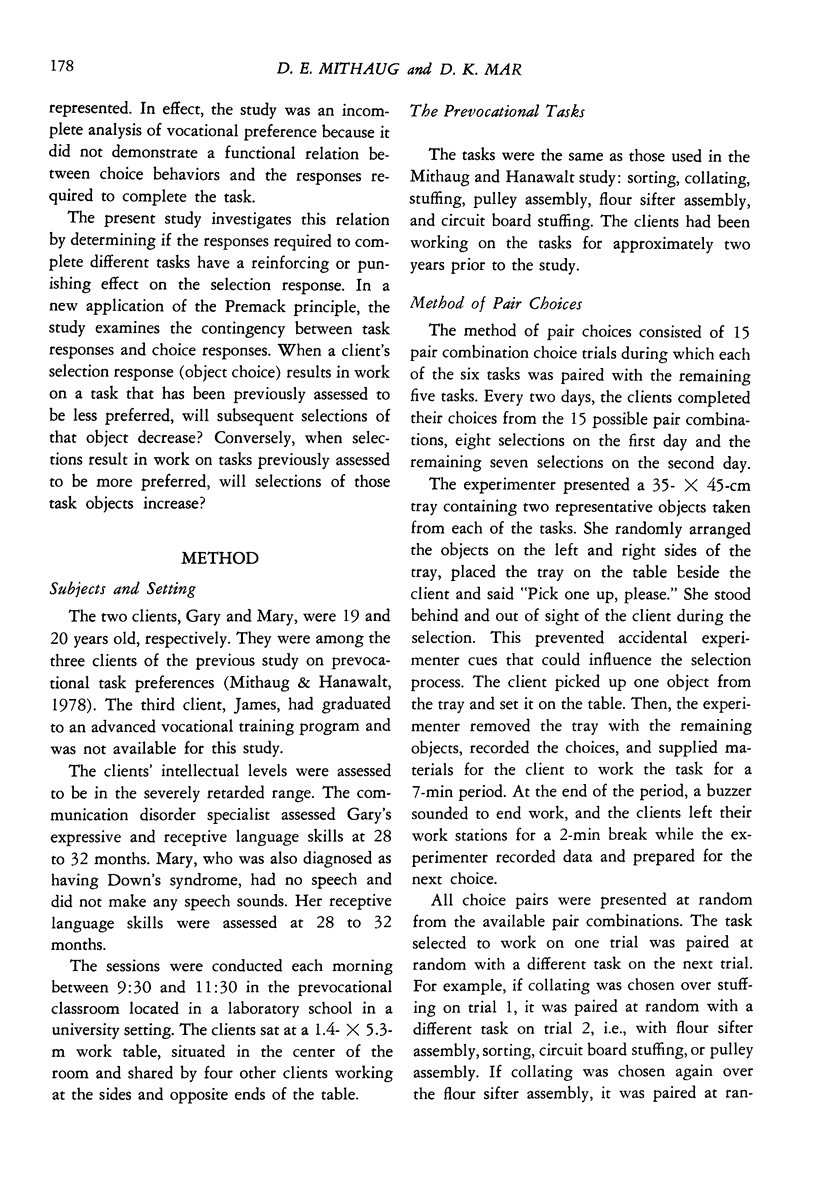
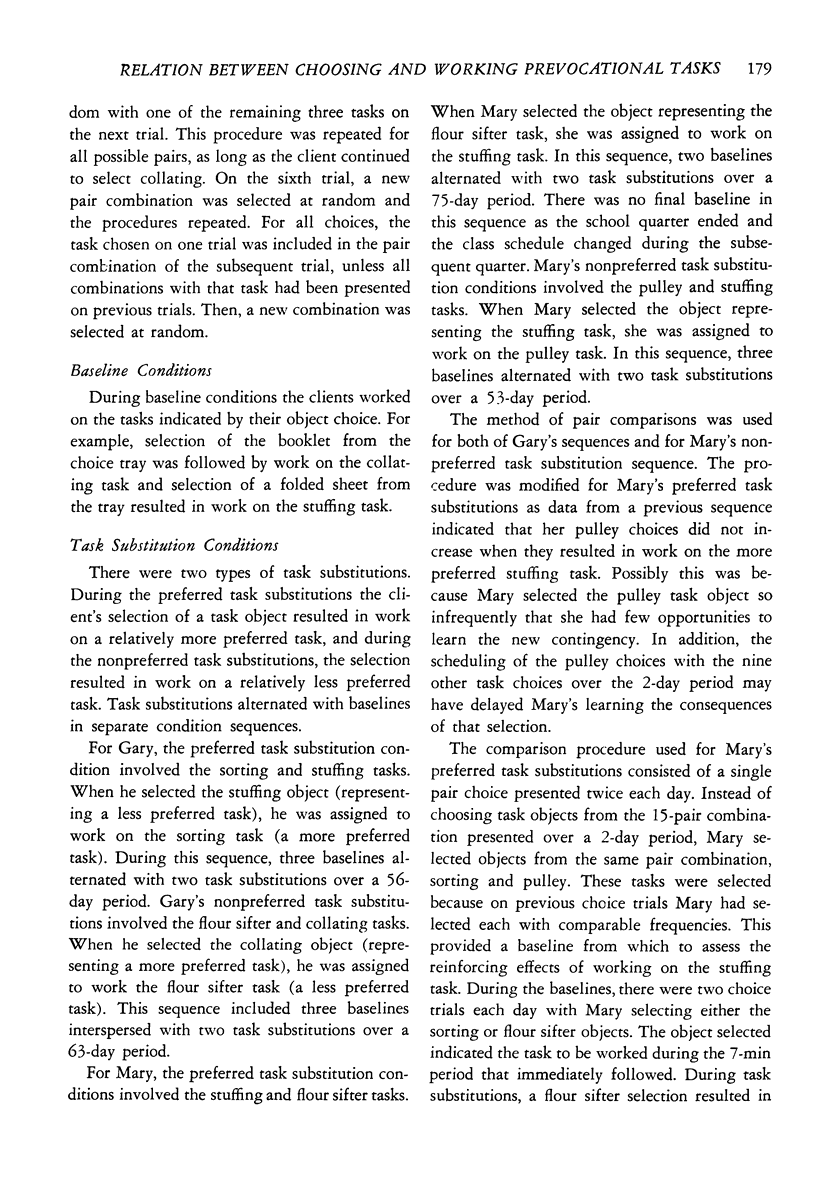
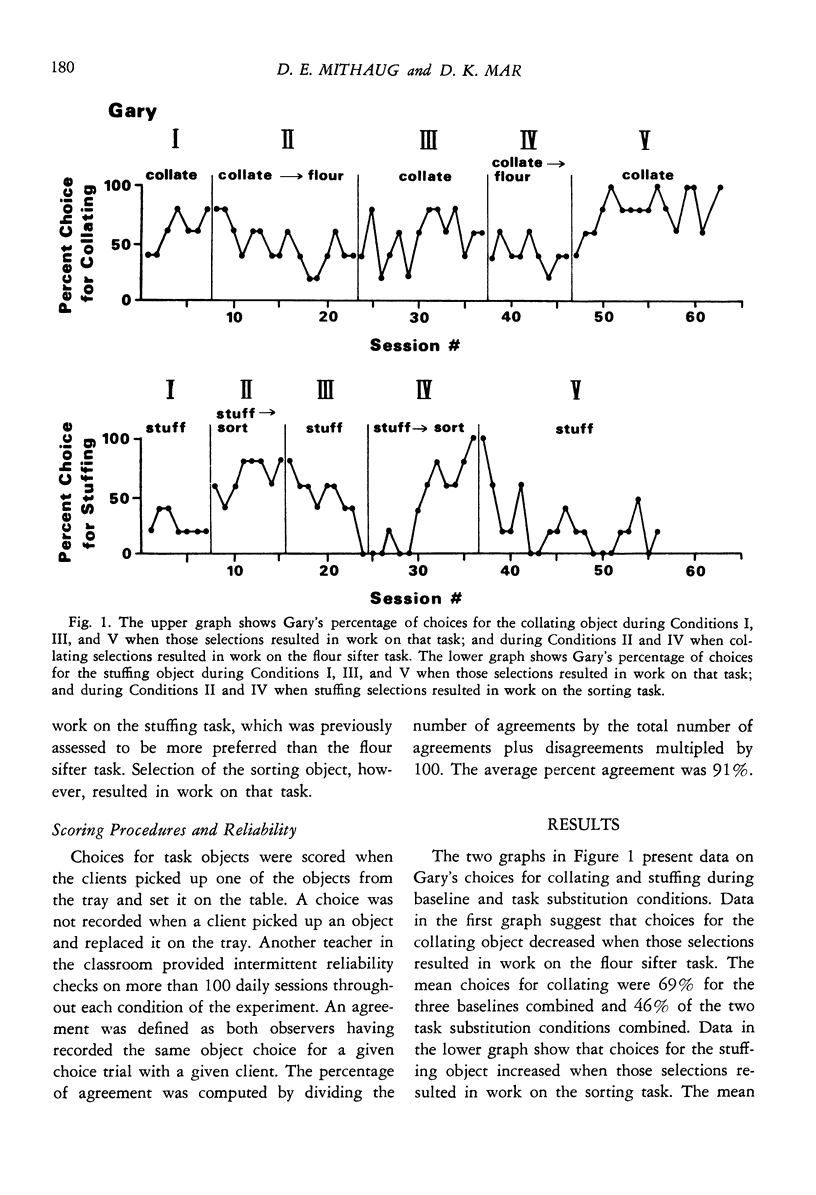
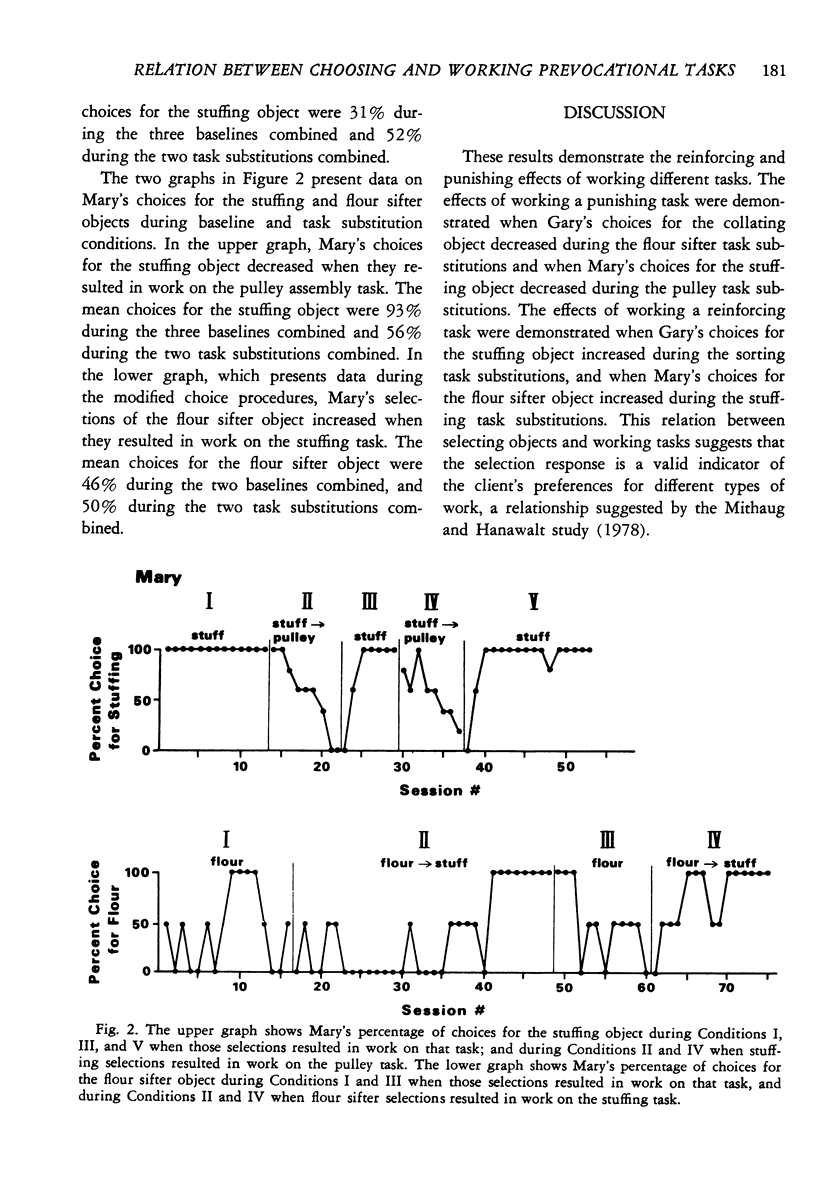
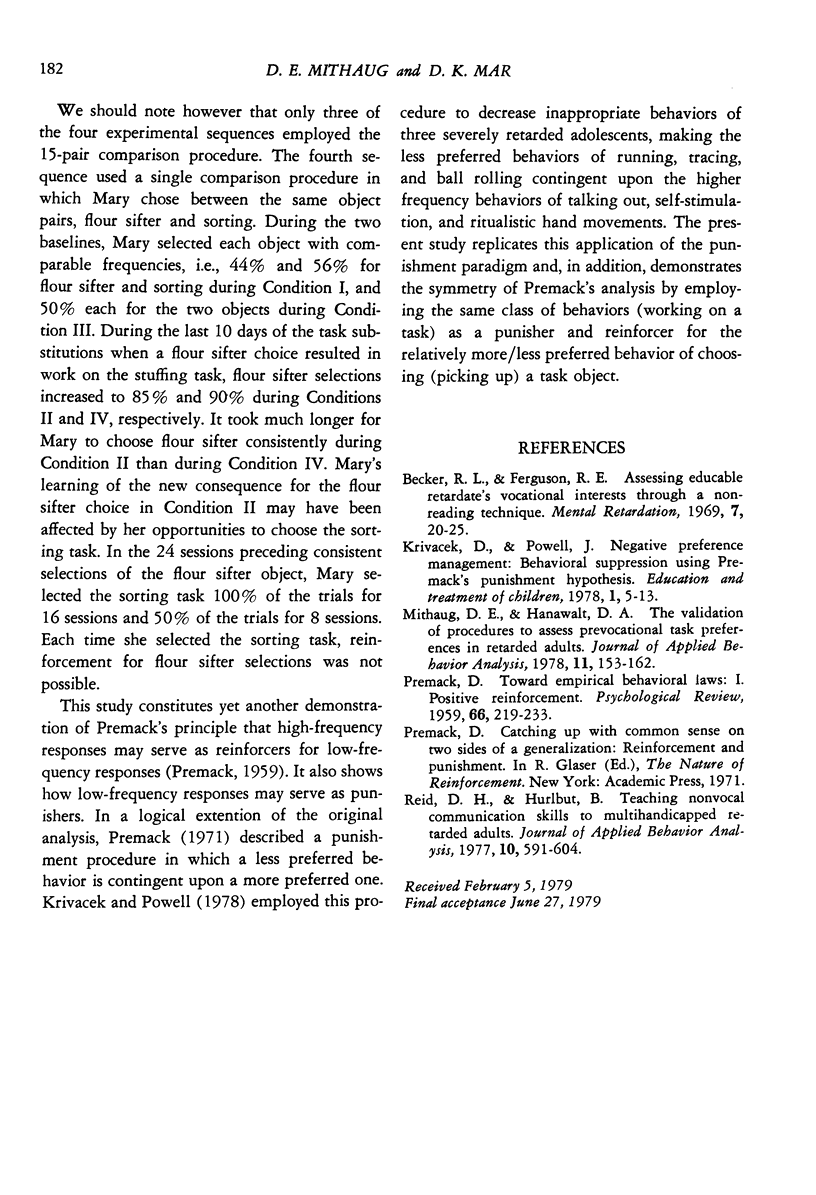
Selected References
These references are in PubMed. This may not be the complete list of references from this article.
- Becker R. L., Ferguson R. E. Assessing educable retardates vocational interest through a non-reading technique. Ment Retard. 1969 Dec;7(6):20–25. [PubMed] [Google Scholar]
- Mithaug D. E., Hanawalt D. A. The validation of procedures to assess prevocational task preferences in retarded adults. J Appl Behav Anal. 1978 Spring;11(1):153–162. doi: 10.1901/jaba.1978.11-153. [DOI] [PMC free article] [PubMed] [Google Scholar]
- PREMACK D. Toward empirical behavior laws. I. positive reinforcement. Psychol Rev. 1959 Jul;66(4):219–233. doi: 10.1037/h0040891. [DOI] [PubMed] [Google Scholar]
- Reid D. H., Hurlbut B. Teaching nonvocal communication skills to multihandicapped retarded adults. J Appl Behav Anal. 1977 Winter;10(4):591–603. doi: 10.1901/jaba.1977.10-591. [DOI] [PMC free article] [PubMed] [Google Scholar]


